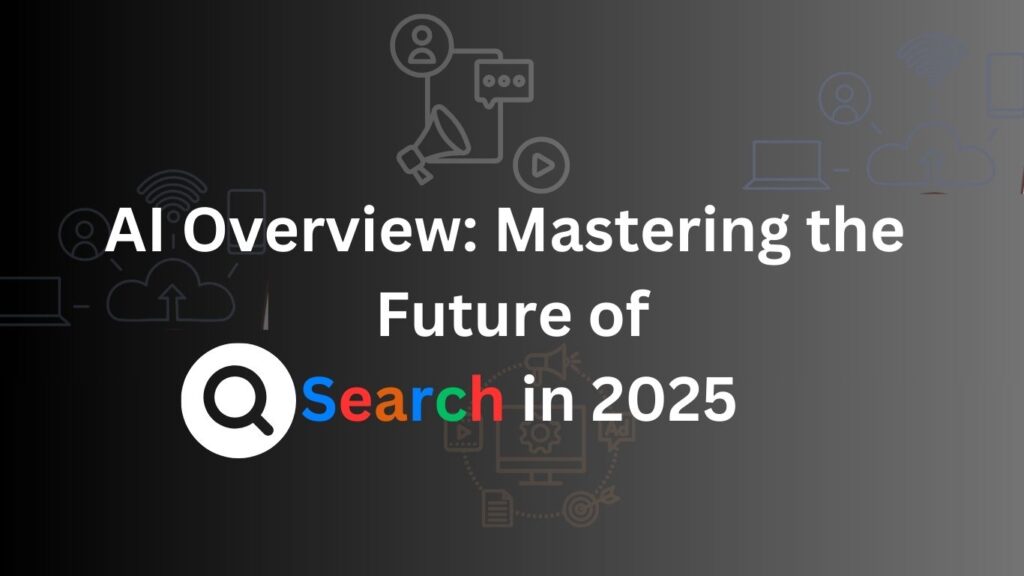Step back a bit: When did Google AI Overview come out?
Google introduced AI Overviews on May 14, 2024, at its yearly developer event. This new feature builds on an earlier tool called the Search Generative Experience (SGE).
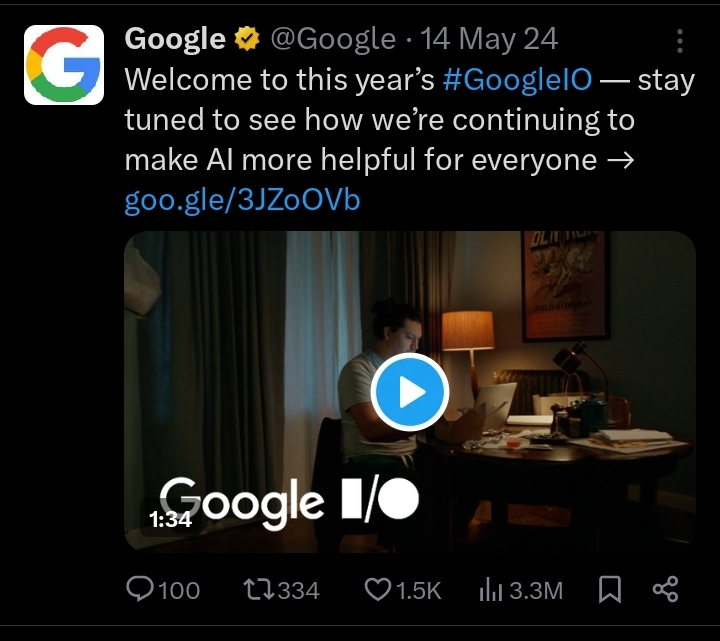
What Is AI Overview?
AI Overview is a generative AI feature that gives quick, easy-to-read summaries at the top of Google search results.
Here’s what Google AI Overview looks like:
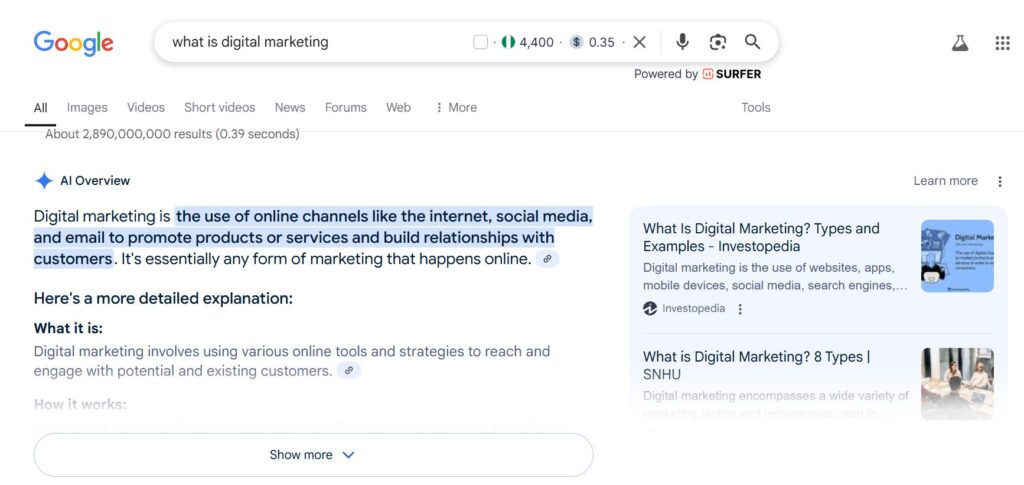
The feature started rolling out in the U.S. the same week it was announced. Currently, Google has expanded its AI Overviews within Google Search to over 100 different countries.
Components of Google AI Overview
The features and content of AI overviews can vary from country to country. Google says this is primarily due to language differences, cultural nuances, and the specific information needs of users in each region.
Below are the key components I have observed from AI overviews searching the web from Nigeria:
1. AI-Generated Summary
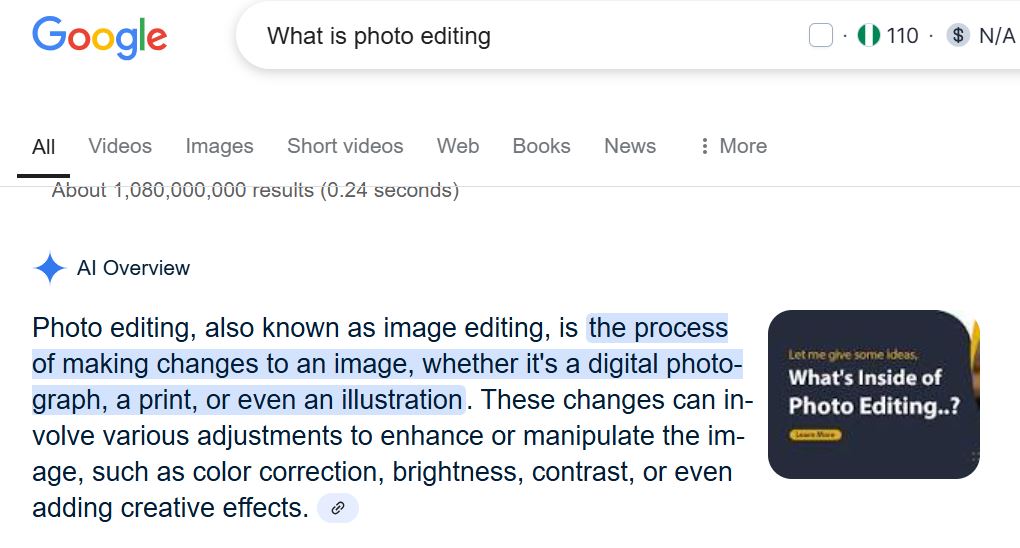
This is usually the first part of AI overview that gives a quick answer to your search, shown in a short summary that you can expand to read more.
2. Key Points With Links
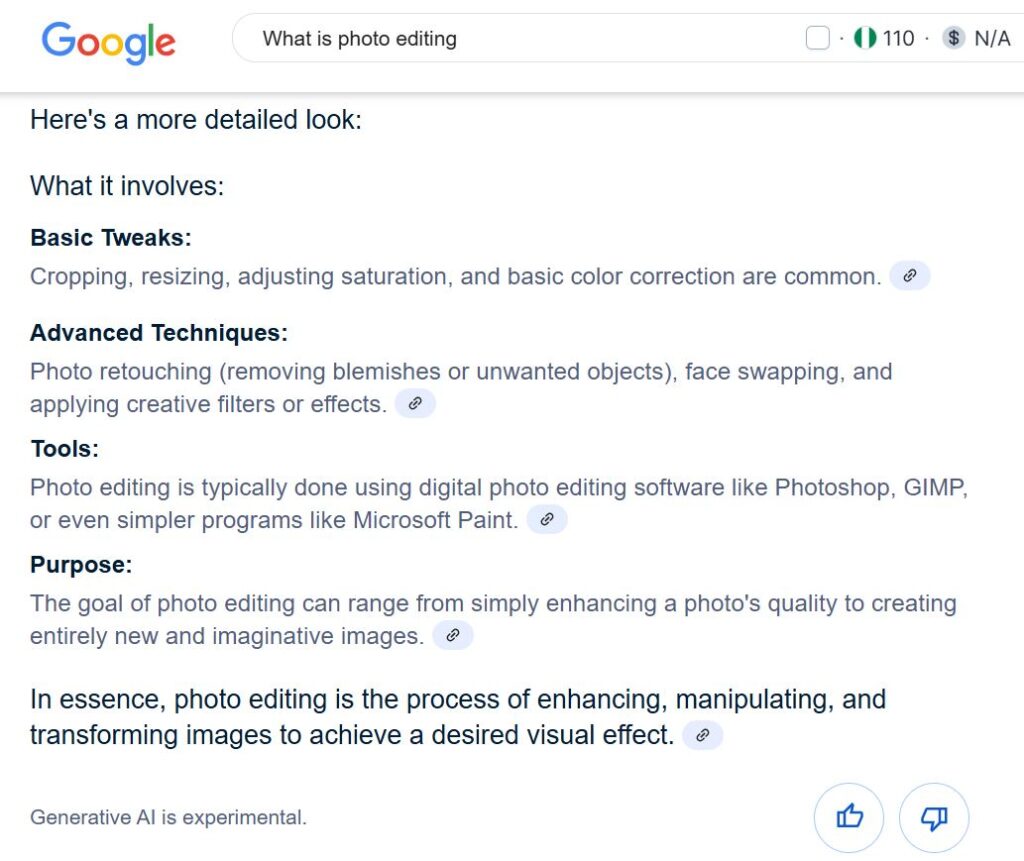
Here, you’ll see a list of important points, each with a link to the website where the information came from.
3. Expanded AI Answer

If you click “Show More,” you’ll get a longer, more detailed explanation of the topic.
4. Linked Overview
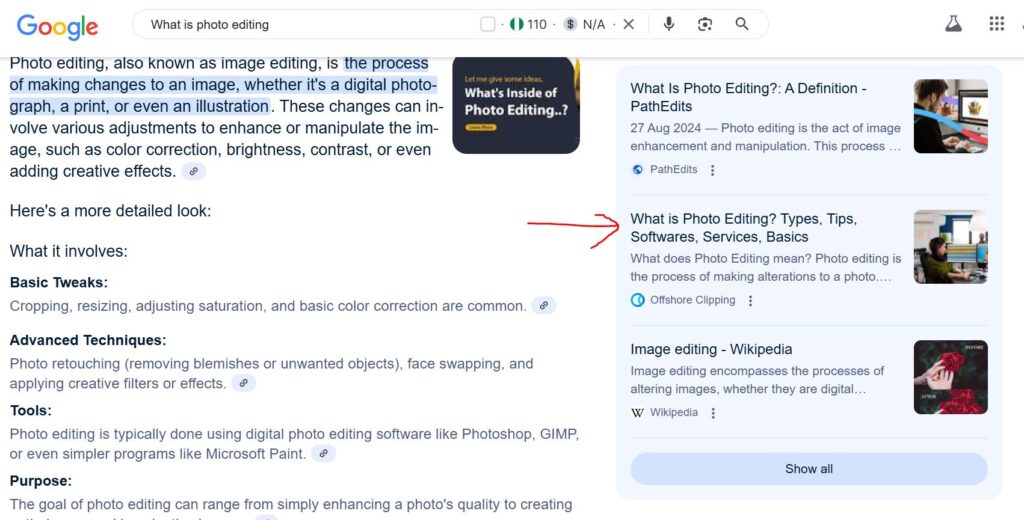
This is where you’ll see a list of websites related to the answer, so you can check out the sources yourself. You can also click ‘Show all’ to see more linked sources.
What is the Impact of AI Overview on SEO?
One of the best things about AI Overview is that it saves you time by instantly giving you the key answer you’re looking for—without having to scroll through multiple links.
But for marketers and businesses, there’s growing concern that users may stop clicking through to websites, leading to lower traffic and fewer conversions.
So are AI Overviews the end of SEO? Here are 5 key ways AI overviews are impacting SEO in 2025:
1. Fewer Clicks to Websites
AI Overviews often answer search queries directly on the results page. This means users might get what they need without ever clicking through to a website, reducing traditional organic traffic for many sites.
2. Higher Value on Authority and Trust
Since Google pulls information from trusted sources to generate overviews, being recognized as an authority in your niche is now more important than ever. High-quality, well-researched content has a better chance of being referenced in AI-generated answers.
3. SEO Shifts to Content Structuring
It’s no longer just about keywords. Structured content—like clear headings, summaries, FAQs, and concise answers—helps Google understand and extract key points for AI summaries.
4. Featured Mentions Over Page Visits
Even if users don’t click, being mentioned or linked in AI overviews can still boost brand awareness and perceived expertise. Think of it as SEO visibility without the click.
How to Optimize Content for AI Overviews
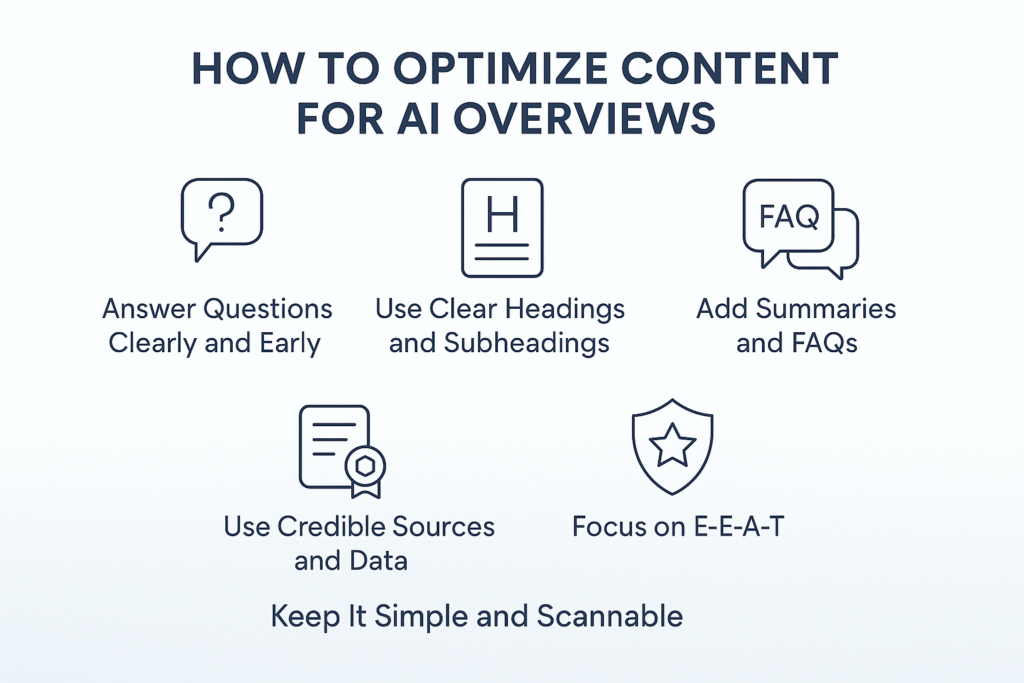
Adapt Your SEO Strategy Beyond Traditional Tactics
SEO isn’t just about keywords anymore: adapt by creating helpful, clear, and credible content that answers real questions fast. Think users first, AI second, and algorithms third.
And don’t stop at Google.
Optimize for everywhere: voice search, social platforms, YouTube, and AI tools. Use clear language, structured formats, and platform-friendly content to show up wherever your audience is searching.
The Future of Search: AI and Beyond
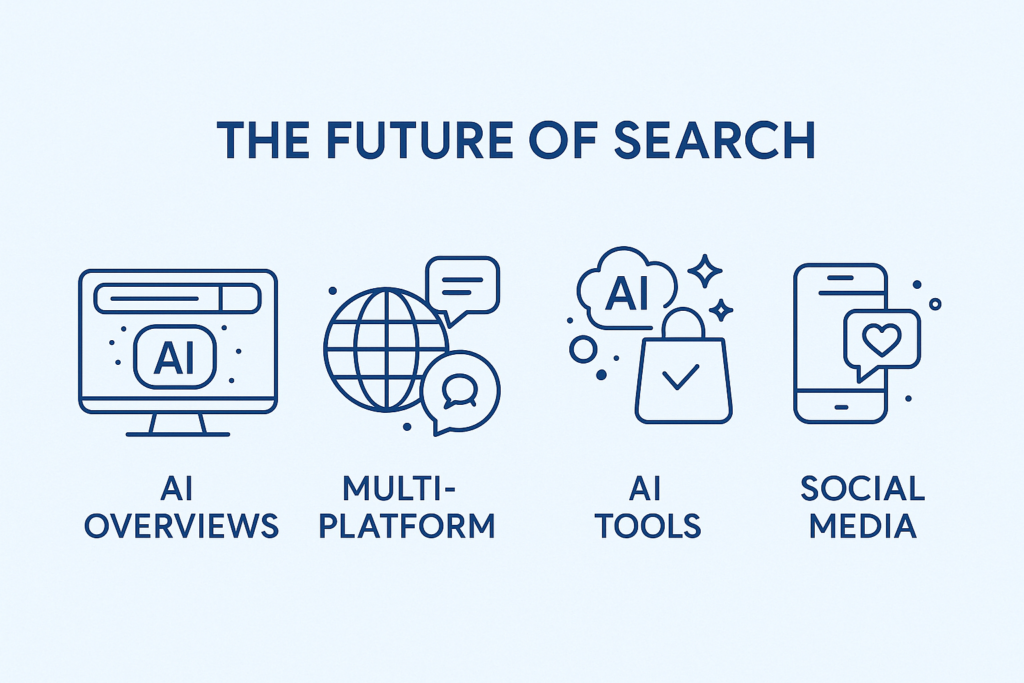
The future of search is rapidly evolving, with AI at its core. In 2025, Google’s AI Overviews are transforming how users interact with search results, often providing answers directly on the search page and reducing the need to click through to individual websites.
This shift has significant implications for businesses and marketers. As users increasingly rely on AI-generated summaries, traditional SEO strategies must adapt to maintain visibility and engagement.
It’s crucial to focus on creating high-quality, authoritative content that AI tools recognize and reference. Moreover, the search landscape is diversifying beyond traditional engines.
Platforms like ChatGPT are integrating shopping capabilities, offering personalized recommendations and streamlined purchasing experiences.
Social media platforms are also becoming primary sources for brand discovery, especially among younger audiences.
To stay ahead, businesses should adopt a multi-platform approach, optimizing content not just for search engines but also for AI tools and social media platforms.
Embracing this new era of search requires agility and a commitment to understanding and leveraging the capabilities of AI-driven technologies.

